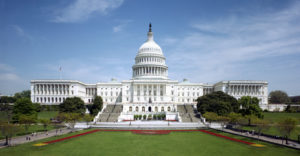 The American public and scores of industry groups are not sharing in the joviality Republicans expressed after rushing their latest stab at healthcare law through the House. Unlike Republicans’ first attempt at dissecting healthcare in March, and despite the widespread chilly reception at large, the American Health Care Act (AHCA) – the Republican answer to replacing the seven-year-old Affordable Care Act (ACA) — just barely cleared the House of Representatives (by 217-213). Next stop, Senate.
The American public and scores of industry groups are not sharing in the joviality Republicans expressed after rushing their latest stab at healthcare law through the House. Unlike Republicans’ first attempt at dissecting healthcare in March, and despite the widespread chilly reception at large, the American Health Care Act (AHCA) – the Republican answer to replacing the seven-year-old Affordable Care Act (ACA) — just barely cleared the House of Representatives (by 217-213). Next stop, Senate.
Patients with pre-existing conditions may lose protection in some states
One of the most controversial aspects of the bill is the removal of the ACA’s requirement that insurance companies cover individuals regardless of health condition, without charging them higher premiums. The Republican answer to that in the form of the AHCA (which has not yet been scored by the Congressional Budget Office [CBO]) would hand the pre-existing baton back to the states and let them decide whether to uphold the pre-existing protection the ACA afforded or to send high-risk patients to a state-funded pool, which critics have already said will be woefully underfunded, will offer inadequate coverage, and will come with extremely high premiums.
Medicaid rollout would be reeled back in
Another measure of the AHCA that will impact tens of millions of Americans is the halt of the Medicaid expansion after 2020. More than 14 million people currently have health insurance under the ACA because of the Medicaid expansion. The bill would prohibit individuals insured because of the expansion to leave Medicaid and return, even if they’ve only been off the program a short time.
The Medicaid expansion includes many people who work as independent contractors, freelancers, seasonally, or part-time, for instance, and due to fluctuations in income or coverage available from an employer, will opt in or out of the program as needed. Analyses show that type of cycling to occur in 25% of Medicaid enrollees per year. Those people would be prevented from re-entering the Medicaid program after leaving it (even temporarily), even if their current situation would have qualified them for re-entry under the ACA.
And then there’s the matter of funding. Beginning in 2020, the AHCA would require states to bankroll expansion enrollees without federal assistance. For instance, around 700,000 Ohioans currently have insurance thanks to the Medicaid expansion under the ACA. If roughly that many individuals are still in the program in 2020, Ohio would have to come up with an additional $2.2 billion on its own.
In one regard, Ohio is already bracing for that. The Columbus Dispatch reports that this year’s state budget proposal reflects the uncertainty swirling around healthcare law, and includes slashed Medicaid rates for hospitals and nursing homes. If the budget is approved, Ohio hospitals would be hit with a cutback of around $588 million.
“Robin Hood in reverse”?
“Rural hospitals will close, two million jobs will be destroyed across America, and all of this to give a massive tax cut to the richest in America,” said House Minority Leader Nancy Pelosi. “It’s Robin Hood in reverse.”
Although the AHCA was rushed through the House without the CBO scoring it first, the office did score the first version of the bill, and the revisions in the meantime have not improved the Medicaid expansion prognosis. The CBO’s estimate for the tourniquet on federal funding for Medicaid overall puts the resulting reduction at a whopping $880 billion over nine years, beginning this year. Additionally, the office says that the AHCA would result in 24 million individuals losing healthcare coverage.
AMA president warns of “serious harm” from the AHCA as-is
American Medical Association (AMA) President Dr. Andrew Gurman spoke to that in a statement last week. “Proposed changes to the bill tinker at the edges without remedying the fundamental failing of the bill—that millions of Americans will lose their health insurance as a direct result of this proposal,” he said. He also said that none of the tweaks Republicans have made since the bill’s first appearance would prevent the “serious harm” the AHCA could visit on individuals and healthcare in general.
Gurman also expressed his hope that the Senate could work “to craft bipartisan solutions so all American families can access affordable and meaningful coverage, while preserving the safety net for vulnerable populations.”
Is the only group happy with the AHCA the House Republicans who signed it?
In addition to the AMA, other groups opposing the AHCA include the California Medical Association, the American Lung Association, the American Diabetes Association, the American Heart Association, the American Nurses Association, the American Academy of Family Physicians, the American Academy of Pediatrics, the American College of Physicians, the American Congress of Obstetricians and Gynecologists, and many others.
This blog post is provided for educational purposes only and is not offered as, and should not be relied on as, legal advice. Any individual or entity reading this information should consult an attorney for their particular situation. For more information/questions regarding any legal matters, please email [email protected] or call 310.203.2800.